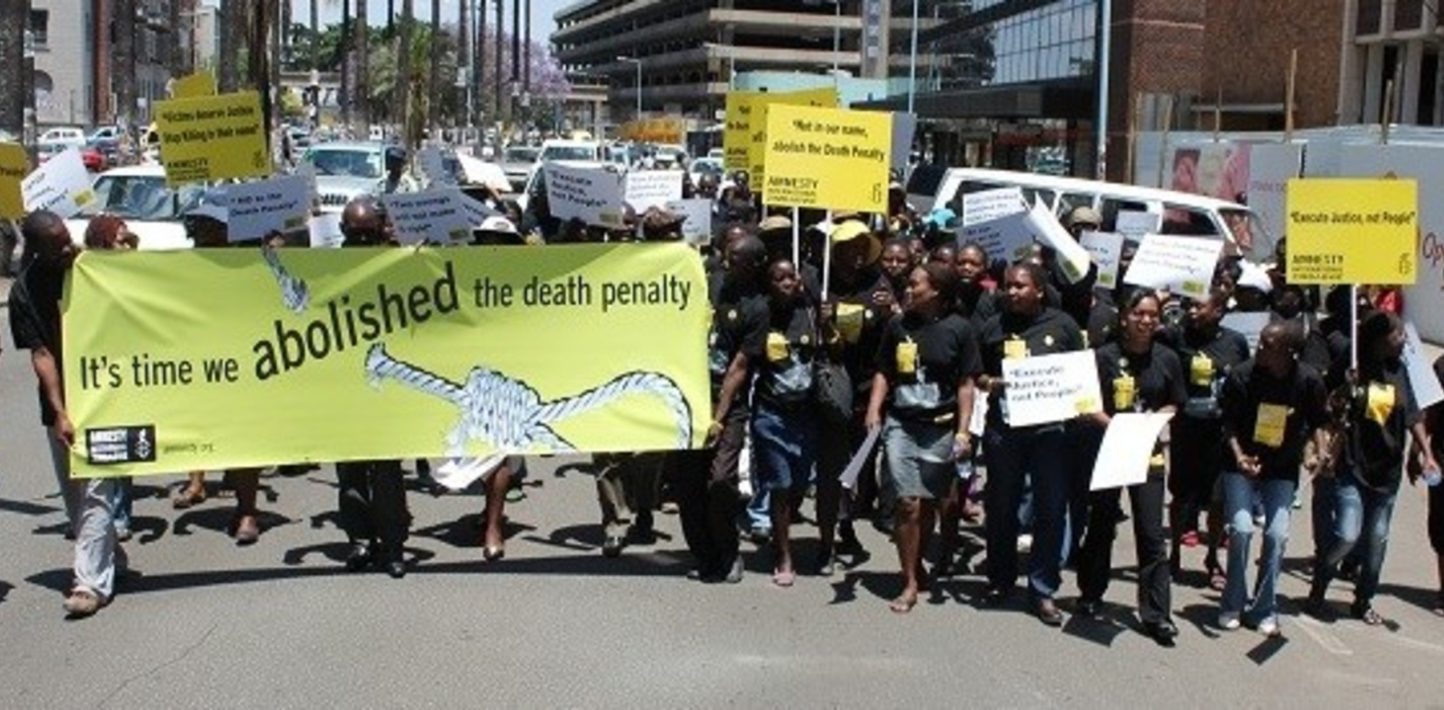Last week, Amnesty International published its report on the global use of the death penalty for 2016. The report indicates that at least 1,032 people were executed in 23 countries. Excluding China, which executed more people than the rest of the world combined, 87% of all executions took place in Iran, Saudi Arabia, Iraq and Pakistan.
In recent years, Sub-Saharan Africa has stood out as a beacon of hope and positive progress on the abolition of the death penalty. However, 2016 saw a mix of good and bad news.
The good news is that there has been a significant reduction in the number of executions carried out in the region. The number of recorded executions went down by about 49%, with 22 executions recorded in 2016 compared to 43 in the previous year.
In addition two countries in the region abolished the death penalty. In January 2016 the Constitutional Court of Benin ruled that, in order to comply with the country’s international human rights obligations, all laws providing for the death penalty were void and death sentences could no longer be imposed in the country. The landmark decision effectively abolished the death penalty in the country.
In January 2016 the Constitutional Court of Benin ruled that, in order to comply with the country’s international human rights obligations, all laws providing for the death penalty were void and death sentences could no longer be imposed in the country
null
Later in the year Guinea introduced a new Criminal Code which removed the death penalty as an applicable punishment for ordinary crimes. While Guinea’s Military Code still provides for the death penalty for exceptional crimes, a bill to remove all death penalty provisions from the Military Code is pending in the country’s National Assembly.
These positive developments in Benin and Guinea followed the trend from 2015 whenMadagascar and the Republic of Congo consigned the death penalty to history. The pace of abolition in Sub-Saharan Africa has been steady and promising. In 1977 when Amnesty International started campaigning and advocating for the worldwide abolition of the death penalty no country in Sub-Saharan Africa had abolished the death penalty for all crimes; today 19 have.
There was also good news for hundreds of people in the region who had been condemned to death and were reprieved in 2016 when death sentences were commuted in Kenya, Nigeria, Ghana, Mauritania and Sudan. The commutations in Kenya were particularly remarkable as President Uhuru Kenyatta commuted the death sentences of 2,747 prisoners – the entire death row population in Kenya at the time. Kenya has not carried out executions in 30 years and this move further steers it away from the death penalty.
On the other hand, two countries that had not carried out executions since 2013 resumed. Botswana executed one person in 2016; and in December three people were suddenly executed in Edo state of Nigeria.
A very worrying trend in Sub-Saharan Africa last year was the sharp increase in the number of death sentences handed down despite the fact that the number of countries where death sentences were imposed by the courts, fell from 21 in 2015 to 17 in 2016. There was a staggering 145% increase in the number of death sentences imposed across the region; 1,086 death sentences were confirmed in 2016 compared to 443 in 2015.
This high number of death sentences in Nigeria raises serious concerns about the real possibility of executing the innocent, as unsafe convictions are common. In fact the courts in the country exonerated 32 wrongly convicted people in 2016 alone.
null
This sharp increase was largely due to a massive surge in Nigeria where the courts imposed a total of 527 death sentences, the highest in Africa. This high number of death sentences in Nigeria raises serious concerns about the real possibility of executing the innocent, as unsafe convictions are common. In fact the courts in the country exonerated 32 wrongly convicted people in 2016 alone.
The death penalty is a violation of the right to life; it is the ultimate cruel and inhuman punishment that has no place in the modern era. The majority of the countries in the world, a total of 104, have accepted this fact by completely doing away with it for all crimes. It is time for Sub-Saharan African countries that are yet to do so to join them. There is no reason why, in the foreseeable future, the region could not be completely free of the death penalty.
This opinion piece was first published on Mail & Guardian online


